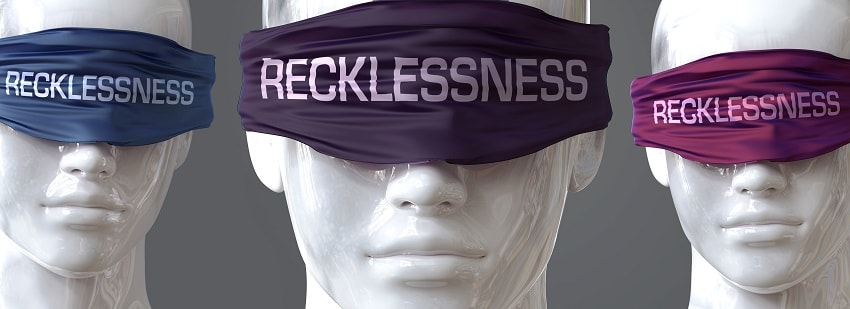Contact Us:

How To Compare and View Personal Injury To Negligence and Recklessness
When a person files a personal injury case against another person, due to causing personal damage or harm, they will usually label the person as somebody who showed negligence or recklessness. Negligence and recklessness do appear interchangeable, they really have different meanings in several legal aptitudes. Depending upon the details of a claim, and understanding the distinctions could be essential.
Negligence: Developing Dangers
Negligence is typically referred to as a person being careless, inattentive, or non-skillful in a situation that requires one to be alert or aware, based on a reasonable individual. Believe it or not, a large bulk of personal injury mention negligence or some form of negligence. Considering that the terminology of negligence is rather open to interpretation and vague, it represents a helpful term that covers almost all incidents and accidents that result in a person getting injured. As an example, a doctor that prescribes a wrong prescription. Also, a property owner that lets out their dog and as a result bites a pedestrian. These two examples are acts of negligence in legal definition terms.

Recklessness: Knowingly Ignoring Common Sense Decisions
When discussing recklessness, it is a legal relative to negligence concerning personal injury claims. Instead of somebody acting carelessly as well as being relatively unaware of a risk they create, recklessness is referred to as an act of intentionally participating in an activity that a sensible individual would certainly see as unsafe. Take into consideration a person that is drinking alcohol and getting intoxicated, yet then gets in their car, attempts to drive home, and causes an auto accident as a result. They are personally acting reckless, that they understood before they started drinking that driving while drunk was against the law and very dangerous.
Recklessness In Comparison To Negligence
It is vital to recognize a difference between the two situations of recklessness and negligence either as an attorney or claimant. Depending on the multiple intricacies of a personal injury case, it could be useful that the injured party prove the defendant was reckless in their decision making. When the judge or a jury is provided with proof that somebody has actually acted with recklessness, and also, therefore, must have recognized the injury they might trigger via their actions, it is typically much easier for the plaintiff’s personal injury attorney to convince a reward of a higher monetary award, and/or perhaps even punitive damages as a punishment for the reckless activity.
Maliciousness: Purposely Injuring Other People
There is a 3rd situation a person can be designated liable in a personal injury claim. When a person acts maliciously, they attempt to injure or negatively disadvantage someone else as well as act to achieve those objectives. It is a criminal activity to attempt to bring injury to somebody else, maliciousness is commonly reserved for personal injury claims looking for restitution. Somebody who was attacked, for example, might submit a personal injury claim with their assaulter, pointing out that the maliciousness and convictions performed are reasons of why they should have complete compensation.
Professional Legal Assistance For Your Personal Injury Claim
When people have suffered injuries by another person, it can be tough to find the best attorney who can advise and represent you for the best legal representation. The Law Office of John J Donohoe has built a high reputation for representing with care and empathy when dealing with our customers, and also interest when taking care of your lawful opposition. So how can a personal injury lawyer help you with your injury claim?
We are here to help you walk through this difficult time in your life. See our page on Personal Injury Law in Colorado Springs to learn more about what we do or give us a call today at 719-636-3551.

